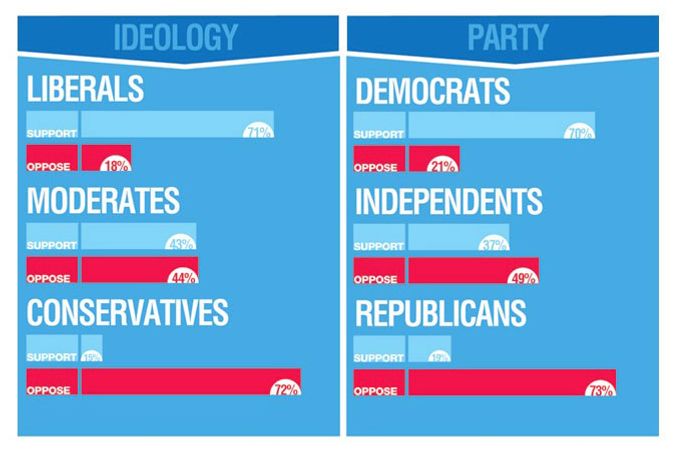
The pro-Israel lobby was never the shadowy, government-controlling entity portrayed by its most paranoid critics. It was, however, an important influence on American politics. Zionism is to Jews what the civil-rights movement is to African-Americans, a political program organized to protect basic survivalist concerns. Jews participate disproportionately in political life in every way: voting, intellectual debate, donating, and organizing. The pro-Israel lobby organized an important constituency in American politics that shared a relatively unified understanding of its collective self-interest.
A month ago, that lobby was gearing up for a massive national campaign to block the Iran nuclear deal, using every medium at its disposal: television ads, face-to-face lobbying, impassioned pleas from the bimah and in the Jewish press. The campaign has not only failed, it has appeared almost completely ineffectual, and its failure has left its members stupefied. The deal’s anticlimactic success shows that the world has moved beyond them, and they fail to understand how or why this happened.
The miscalculations by opponents of the Iran deal began with a poor grasp of public opinion. They imagined they could foment a broad public backlash, and opponents frequently, and triumphantly, cited opinion polls showing more respondents disapproved than approved of the Iran deal. But the results of these polls varied widely. Small changes in wording produced wildly varying results, reflecting the fact that few people knew or cared much about the issue. Turning a foreign-policy issue with no immediate salience to American security — even a nuclear-armed Iran, a worst-case scenario, would not involve an attack on Americans at home or abroad — into an issue Americans would actively care about was never realistic.
A Republican leadership aide, speaking to the Los Angeles Times, blamed Donald Trump’s candidacy for distracting the public. (“The GOP leadership aide, granted anonymity to discuss the setback, said billionaire Donald Trump’s attention-grabbing presidential campaign, along with scrutiny of Hillary Rodham Clinton’s email server, overshadowed all other issues this summer, making it harder for the Republicans’ message to attract attention.”) Their plan could have worked! If only the atmosphere had been, as they apparently assumed it would be, completely devoid of a presidential campaign or other news.
The deal’s opponents not only misjudged public opinion as a whole, but more astonishingly, they misjudged the state of American Jewish opinion in particular. Congress might have been moved to oppose the Iran deal if the American Jewish community had viewed it as an existential threat to Israel. But Jews did not, on the whole, take that view. A detailed survey of American Jewish opinion by The Jewish Journal found that American Jews support the deal, 53 percent to 35 percent. How could that be? Well, this chart shows how Jewish opinion breaks down:

Liberals like the deal, and conservatives don’t, by roughly equal margins. But most Jews are liberals. Rising polarization of American life has cleaved in two everything in its path. There is no more “Israel lobby”; there is a red Israel lobby and a blue one.
The implications of this cleavage made blocking the Iran deal hopeless from the outset. As a simple matter of political mechanics, acquiring a veto-proof majority in both houses of Congress meant hawks needed liberal Democrats to take their side. But they did not have arguments that could appeal to liberals — even liberals with a deep emotional connection to Israel. Nonproliferation experts strongly supported the agreement as the best way out of a difficult circumstance. Even Israel’s security establishment disagreed with Benjamin Netanyahu and the pro-Israel right. The technical case for the strength of the inspections and the enforcement mechanism was strong; the case against leaned heavily on apocalypticism.
And this underscores the most important tectonic forces moving beneath the Israel lobby’s feet. Over the last 15 years, the foreign-policy debate in Israel has moved steadily rightward. (In the last election, left-of-center Israeli parties relied on domestic issues, rather than appealing for territorial compromise.) The Israeli right favors either permanent occupation of the West Bank, or an occupation that lasts until such time as the Palestinians produce a pro-Zionist government, which is functionally the same thing.
That perspective has become increasingly coterminous with the American “pro-Israel” view. At last year’s AIPAC conference, some 65 percent of the attendees were Republican. That skewed perspective has pushed the American Jewish establishment to the right of American Jewry as a whole. Jewish Republicans have always believed that forcing Jews to pick sides between a conservative Israeli government and a liberal American one would leave them with the larger share. Elliott Abrams, a former Bush administration Middle East adviser, today defends the Israel lobby’s choice to launch an existential fight it could not win. “If AIPAC would not fight on this issue,” he concludes, “many of its supporters would wonder why it even exists.” Launching unwinnable fights — and then retroactively justifying the decision in spite of failure — is, of course, an ingrained neoconservative tactic. This is a movement that has no language to express the concept of a counterproductive fight on behalf of a worthy cause.
But there is more at work than simple pigheadedness or habitual aggression. Many conservative supporters of Israel do not necessarily regard the crack-up of American Jewish opinion as a problem. In their view, diplomacy with Iran is the prelude to Israel’s annihilation, and support for Netanyahu’s permanent occupation is the sine qua non of genuine support for Israel. It follows that the Iran debate essentially succeeded, by smoking out the fake Israel supporters. An almost giddy Jennifer Rubin concludes that the deal’s victory destroys “the myth of bipartisan support for Israel.” The crack-up of the Israel lobby is, for its most conservative members, not a failure at all but the fulfillment of a longtime dream.






























